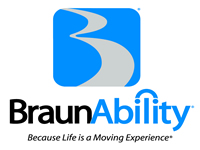Getting the Facts on Fraud Prevention
Think you could spot a scam? Scammers strike via the Internet, phone, email, and even in person. They offer amazing deals, and pose as bankers or tax agents. Their tactics can play on your sympathies, your guilt or fear. Don’t fall for it! March is Fraud Prevention month and we have provided some background information and tips on what to do if you suspect you’ve been scammed.
As Canadians dutifully prepare to file their returns, there is a noticeable increase in email and phone calls that try to lure, scare and threaten you into giving your credit card, social insurance or banking information. The Canadian Revenue Agency (CRA) tax scam is one of the better known schemes. Victims received telephone calls from someone posing to be a CRA agent, requesting personal information such as your social insurance number, credit card number, bank account, or passport number. On its website, the CRA tells taxpayers what to expect if the CRA contacts you. Fortunately, since the RCMP busted several call centres over the CRA scams, the frequency of these phone scams have diminished.
Scammers use every trick in the book – fear, sympathy and romance – to take advantage of people’s trusting albeit vulnerable nature. Children and seniors are often targets but anyone with an email or smartphone is fair game. Be aware and protect yourself. Visit the Competition Bureau of Canada’s website. It offers The Little Black Book of Scams, a helpful guide on recognizing scams and protecting yourself against subscription traps, identity theft, phishing, and tech support scams for example.
One of the biggest ploys (and unfortunately most successful) is the romance scam. A recent report from the RCMP estimated “760 victims in Canada reported losses of more than $22.5 million to the Canadian Anti-Fraud Centre last year, surpassing all other types of fraud.” People searching for love end up falling for scam artists who not only steal their hearts but also their money.
Next to losing yourself head over heels for a con artist, losing your entire identity is probably the worst in terms of recovery. We don’t think twice about sharing our personal information online, from job applications to purchases. But when a data breach happens and your credit card and banking information is stolen, it can be very hard to regain control. CBC Television’s Marketplace series recently ran an episode about identity theft and what you can do about it.
The Anti-Fraud Centre Canada website is a valuable website. If you are a victim of fraudulent activity, report it immediately by calling the Canadian Anti-Fraud Centre toll free at 1-888-495-8501 or visit their website for more information.
Learn how to spot a scam. And remember, if something (or someone) seems too good to be true, then it is.





 Wheelchair in Motion Limited | Van Rentals in Ontario
Wheelchair in Motion Limited | Van Rentals in Ontario